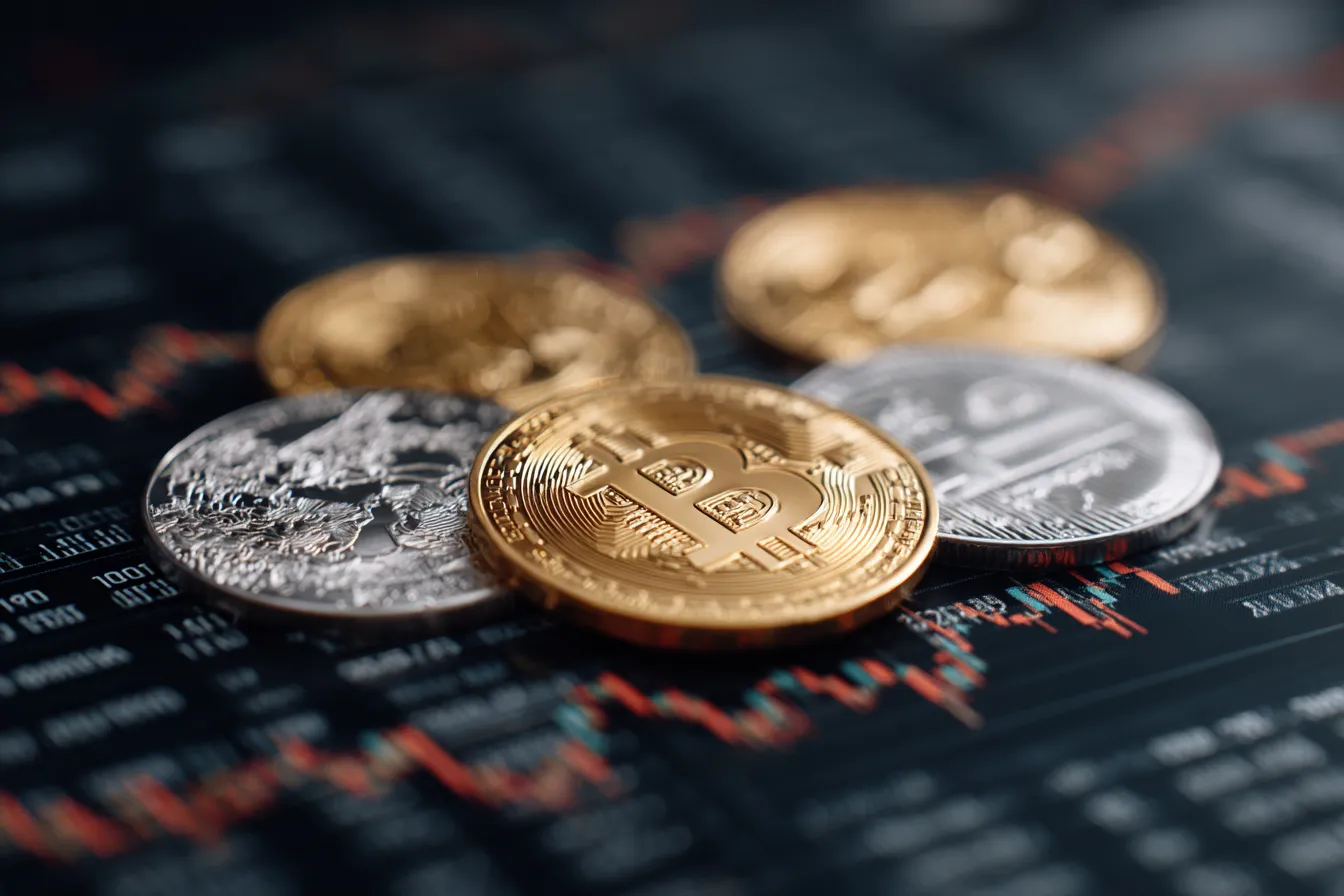S&P Global to Launch Hybrid Index Combining Crypto Assets, Equities

S&P Global plans to launch the S&P Digital Markets 50 Index, a hybrid benchmark combining publicly traded crypto-linked equities with cryptocurrencies in a single index, marking the first time the financial data giant has blended traditional equities and digital assets in one product.
The index will include 35 companies involved in digital asset operations, infrastructure, financial services, blockchain applications and supporting technologies, alongside 15 cryptocurrencies selected from the S&P Cryptocurrency Broad Digital Market Index. The structure aims to provide diversified exposure across both sides of the crypto ecosystem.
S&P Global did not disclose a specific launch date for the index or provide details about constituent selection criteria, weighting methodology, or rebalancing frequency. The company also did not specify whether additional product providers beyond Dinari would offer investment vehicles tracking the benchmark.
"Cryptocurrencies and the broader digital asset industry have moved from the margins into a more established role in global markets," said Cameron Drinkwater, chief product and operations officer at S&P Dow Jones Indices, in a statement Tuesday. "From North America to Europe to Asia, market participants are beginning to treat digital assets as part of their investment toolkit – whether for diversification, growth, or innovation strategies."
Dinari, a provider of tokenized U.S. public securities, collaborated with S&P Global on the index design and will create a token tracking the benchmark. The partnership allows investors to access the index through blockchain-based tokenized products, demonstrating how traditional financial benchmarks can integrate with onchain infrastructure.
"By making the S&P Digital Markets 50 investible via dShares, we are not just tokenizing an index, we are demonstrating how blockchain infrastructure can modernize trusted benchmarks," said Anna Wroblewska, chief business officer at Dinari. "For the first time, investors can access both U.S. equities and digital assets in a single, transparent product."
The launch reflects growing demand for broader crypto exposure beyond pure-play digital asset products. Investors seeking crypto market participation have traditionally chosen between direct cryptocurrency holdings or equities of companies with digital asset operations, but rarely both within a single benchmark.
The hybrid structure could appeal to institutional investors facing restrictions on direct cryptocurrency holdings but seeking crypto market exposure. By combining regulated equities with digital assets, the index may satisfy compliance requirements while providing diversified access to the sector.
The index joins S&P Dow Jones Indices' existing digital asset benchmarks, including the S&P Cryptocurrency Indices and S&P Digital Market Indices. The expansion demonstrates the company's commitment to developing comprehensive tools for evaluating and tracking digital asset performance.
"Independent, reliable and user-friendly benchmarks are a key component of financial markets," Drinkwater said. "As with traditional financial markets, independent benchmarks can help bring transparency and accessibility to the digital asset ecosystem."
The cryptocurrency selection will draw from S&P's existing Broad Digital Market Index, which applies rules-based methodology to digital asset inclusion. The equity component will include companies across the crypto value chain, from exchanges and miners to infrastructure providers and blockchain application developers.
Dinari's tokenized tracking product will allow investors to hold exposure to the index through blockchain-based shares, potentially enabling features like fractional ownership, 24/7 trading, and programmable compliance. The tokenization approach represents a test case for how traditional financial products can leverage blockchain technology for distribution and settlement.
The index launch timing coincides with increasing institutional acceptance of crypto investments following regulatory clarity in key markets. Traditional asset managers have launched Bitcoin and Ethereum ETFs, while major financial institutions have integrated digital asset custody and trading services.
You May Also Like

The market value of Meme coin "Customer Service Xiao He" briefly reached US$89.64 million

Deutsche Bank Sees Bitcoin as Central Bank Reserve by 2030: Report
